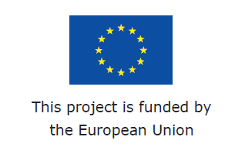The BIOS Lab-on-a-Chip group (BIOS) is involved in research and development of miniaturized systems for biomedical and environmental applications in so-called “Lab-on-a-Chip (LOC)” systems. In their vision, there will be an increasing convergence of micro- and nanotechnologies with physics, chemistry and life sciences to improve the quality of life.
The research of the BIOS group is organized along 4 tracks: (i) micro/nano-fluidics, (ii) electrochemical systems, (iii) micro- and nano-devices for chemical analysis (iv) biomedical micro-devices. The electrochemical systems track, managed by Olthuis, focuses at electrochemical measurements at small scales. For each of these four tracks, intense collaboration exists with partners from within or outside of the MESA+ Institute. The BIOS group is a worldwide pioneer in ISFET research, with in-house expertise for manufacturing, measuring and theoretical understanding.
MESA+, Institute for Nanotechnology, is part of the University of Twente, having intensive cooperation with various research groups within the University. The institute employs 500 people of which 275 are PhDs or postdocs. With its NanoLab facilities the institute holds 1250 m2 of cleanroom space and state of the art research equipment. MESA+ has an integral turnover of 45 million euro per year of which 60% is acquired in competition from external sources. MESA+ has been the breeding place for more than 40 high-tech start-ups to date.
The University of Twente stands for life sciences and technology. High tech and human touch. Education and research that matter. New technology which leads change, innovation and progress in society. The University of Twente is the only campus university of the Netherlands; divided over five faculties we provide more than fifty educational programmes. We have a strong focus on personal development and talented researchers are given scope for carrying out groundbreaking research.
It is our task to develop a label-free (Fin)FET sensor. We will fabricate and characterize the FinFET sensor. Optionally, we may start by fabricating and testing junctionless 2D FET sensors. Their characteristics can possibly be improved by modifying the gate oxide with nanorods. Additionally, after validation, we will develop multiplexing of the (Fin)FETs and subsequently fabricate the multiplexed sensor chips resulting in a prototype to be validated in laboratory-relevant conditions.
UoT Team
- Wouter Olthuis (1960) received his MSc. degree in electrical engineering from the University of Twente, Enschede, the Netherlands. Then, he joined the Center for MicroElectronics, Enschede (CME). After that, he started his PhD project and received the PhD degree in 1990. Since 1991 he has been working as an Assistant Professor in the Laboratory of Biosensors of the University of Twente on physical and (bio)chemical sensors. Currently, he is Associate Professor in the BIOS Lab-on-Chip group of the MESA+ Institute of Nanotechnology. He has (co-)authored over 180 papers (h=40) and 7 patents. From 2006 until 2011 he has also been the Director of the Educational Programme of Electrical Engineering at the University of Twente.
- Rajendra Prasad Shukla (1990) received his B.Tech. (Bachelor of Technology; 2008-12) degree in Electronics & Communication Engineering from Faculty of Engineering and Technology, Agra College, Agra and M.E.(Master in Engineering; 2012-14) degree in Microelectronics from BITS Pilani University, Hyderabad campus, India. Rajendra has been a visiting research scholar in CEN (Center of excellence in Nanoelectronics) at Indian Institute of Technology Bombay and R&D Engineer in CeNS (Center for Nano and Soft Matter Science) Banglore, India. After that he joined Nanobioelectronics Laboratory (NBEL) as a PhD student under the supervision of Dr. Hadar Ben-Yoav in the Department of Biomedical Engineering, Ben-Gurion University of the Negev, Israel. He has recently completed his Ph.D. thesis (August-2020). Rajendra has joined the BIOS Lab-on-Chip group of the MESA+ Institute of Nanotechnology at the University of Twente as a postdoctoral researcher in November 2020 for the Electromed Project.



